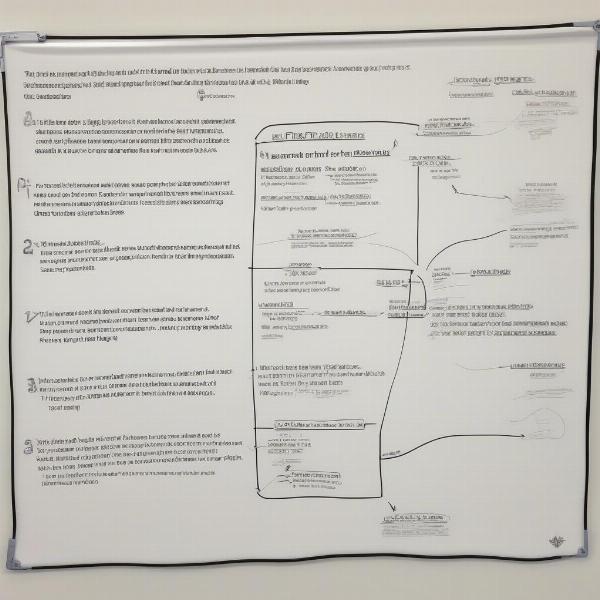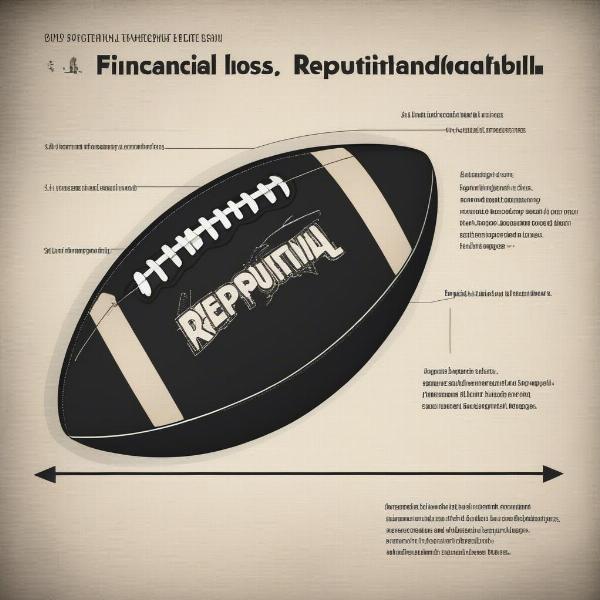The question of whether an NFL team can forfeit a game is more nuanced than a simple yes or no. Here at SupremeDuelist.blog, we delve into the intricacies of sports regulations to provide you with clear, concise answers. While forfeits are exceptionally rare in the NFL, understanding the conditions under which they could occur, along with their potential ramifications, is crucial for any avid football fan. This article will unpack the rules, explore historical precedents, and examine the implications of such an event.
In this comprehensive guide, we’ll explore the specific scenarios where a forfeit might be considered, detailing the NFL’s protocols and why such a drastic measure is almost never taken. We’ll also consider the ripple effects of a forfeit, not just for the team involved, but also for the league itself.
The Rare Occurrence of an NFL Forfeit
Unlike some other sports leagues, forfeits are exceedingly uncommon in the National Football League. This isn’t due to a lack of rules, but rather the league’s preference to reschedule games whenever possible. The NFL prioritizes the completion of its full schedule, both for competitive balance and to uphold agreements with broadcast partners. Forfeits are typically only considered as a last resort.
Why Forfeits are Uncommon in the NFL
The NFL has structured its operations to minimize the possibility of a forfeit. Here are key reasons why:
- Strong Union Agreements: The NFL Players Association (NFLPA) is a powerful union that works to ensure player safety and game consistency. Player health and safety are prioritized and thus forfeits are often avoided, making the process a collaborative effort.
- Robust Rescheduling Protocols: The league has extensive protocols to reschedule games due to unforeseen circumstances like severe weather or health crises, like the COVID-19 pandemic. These protocols have been refined and improved over the years.
- Financial Considerations: Forfeits can lead to significant financial losses, impacting ticket sales, TV revenue, and team sponsorships. The NFL aims to avoid these losses wherever possible and, as such, will seek out an alternative to a forfeit.
- Commitment to Competitive Integrity: Forfeiting a game creates a skewed record, negatively impacting competitive integrity. The league strives to maintain fair competition throughout the season.
- Game Day Contingency Plans: Teams and the league have contingency plans for unusual game-day circumstances, such as stadium issues or other unexpected problems.
 nfl team forfeit rules explanation
nfl team forfeit rules explanation
What Would Constitute an NFL Forfeit?
While very rare, there are specific situations where a forfeit could technically occur. These are typically scenarios where a team is unable to field a sufficient number of players due to extreme circumstances. Some of the most common causes include:
- Severe Health Emergencies: A widespread illness or health crisis affecting a team, making it impossible to field the required number of players could potentially lead to a forfeit, especially if a rescheduling is not possible.
- Catastrophic Events: Natural disasters, major accidents, or severe incidents impacting the stadium or facilities can sometimes prevent a game from being played, and if rescheduling is not a viable option, a forfeit is possible.
- Mass Suspension: If a large number of players are suspended simultaneously due to a violation of league rules, this could result in a forfeit, should there be an insufficient number of players available.
The NFL’s Rescheduling Approach
The NFL’s preference is to reschedule rather than forfeit games. Rescheduling involves logistical complexities that include finding a new date, accounting for broadcast schedules, and dealing with stadium availability, but these are all challenges the league is often willing to take on to keep the integrity of the competition intact. For example, in past seasons games have been rescheduled because of pandemics, hurricanes, and other issues. These examples highlight the leagues preference to make schedule changes rather than resorting to forfeits.
The Impact of a Forfeit in the NFL
The ramifications of an NFL forfeit are considerable, extending beyond the immediate outcome of a single game. Here’s how a forfeit can affect various parties:
Impact on the Forfeiting Team
- Loss of Game: The immediate consequence is a loss on the team’s record, impacting their overall standings and chances of making the playoffs.
- Financial Penalties: The forfeiting team could face financial penalties from the league, including a reduction in revenue sharing.
- Reputational Damage: A forfeit can severely damage a team’s reputation, both with fans and the larger league community. It can create the impression that a team did not fulfill their responsibility.
- Player Morale: Forfeits can negatively affect player morale and team dynamics, disrupting team cohesion and creating a feeling of unfairness.
 nfl team forfeit penalties and reputational risks
nfl team forfeit penalties and reputational risks
Impact on the Opposing Team
- Automatic Win: The opposing team receives an automatic win, positively impacting their record and playoff chances.
- Potential Scheduling Issues: Rescheduling could negatively affect them. The change in schedule could disrupt their training plans and performance as well.
- Lack of Competition: Players and fans alike often want to see a full game, and a forfeit deprives the team of the chance to compete and gain valuable experience.
Impact on the League
- Erosion of Competitive Integrity: Forfeits can impact the league’s overall competitive balance, potentially influencing playoff seeding and outcomes.
- Fan Disappointment: Fans miss out on the opportunity to watch competitive games. This lack of competition can disengage and disenfranchise the fanbase.
- Broadcast Conflicts: Forfeits can disrupt broadcast schedules, potentially causing logistical issues with media partners.
- Negative Publicity: Forfeits often attract negative media attention, impacting the league’s overall image and brand.
Historical Precedents and Hypothetical Scenarios
There have been several instances where games were in danger of being forfeited, but the NFL has successfully navigated around such an event. Instead, the league will reschedule games, postpone them or even move game times in the interests of fairness and competition.
Hypothetical Scenarios Leading to Forfeits
Let’s consider a few hypothetical scenarios to understand how forfeits could occur:
- Scenario 1: Widespread Illness: A severe and contagious disease outbreak within a team that leaves them with insufficient healthy players. If rescheduling is not feasible, a forfeit might be considered.
- Scenario 2: Travel Ban: A massive regional travel ban due to weather or some other catastrophe that prevents one team from travelling to the game and rescheduling isn’t possible, a forfeit might be the last recourse.
- Scenario 3: Stadium Failure: A major, catastrophic event that leads to the complete failure of a stadium, and no nearby alternative is available would mean rescheduling is not an option, and a forfeit might be considered.
“Forfeits are extremely rare due to the league’s robust infrastructure and focus on game completion,” explains Dr. Emily Carter, a sports law expert at the fictional “National Sports Academy”. “The NFL prioritizes scheduling games in the interest of fairness and financial agreements.”
Avoiding Forfeits: A Case Study
In recent years, the NFL has successfully rescheduled games during the COVID-19 pandemic and even during severe weather events. These cases clearly demonstrate the leagues preference for rescheduling over forfeiting a game.
FAQs: Understanding NFL Forfeits
Let’s address some frequently asked questions about NFL forfeits:
Q: Can an NFL team decide to forfeit a game simply because they don’t want to play?
A: No, an NFL team cannot simply choose to forfeit a game for strategic reasons or because they don’t feel like playing. Forfeits occur only when a team is unable to play due to extraordinary circumstances that go beyond mere lack of desire.
Q: Is it possible for a team to forfeit due to financial issues?
A: While financial issues could impact a team’s ability to operate, the NFL has financial safeguards in place to prevent teams from forfeiting due to these issues. The league is more likely to step in and provide assistance or find a solution rather than resorting to a forfeit.
Q: If a game is forfeited, will the opposing team get to practice that week?
A: Yes, even if the game is forfeited, the opposing team will still use that week to practice and train for the next week. Though they are not competing against another team, they will keep on schedule as they normally would.
Q: Can a team be penalized for causing a forfeit?
A: Yes, a team can be penalized for causing a forfeit. This could include financial fines and potential other league sanctions. The penalty will be based on the severity of the circumstances.
“The intention of the NFL is to maintain fair competition and schedule completion,” notes Jonathan Miles, a fictional NFL rules analyst. “Forfeits undermine these goals and are therefore avoided at all costs.”
Key Questions About Forfeits in the NFL
Let’s explore some specific questions related to this topic:
What are the most likely reasons for an NFL team to forfeit a game?
The most likely reasons include major health emergencies, mass suspensions that leave a team short on players, catastrophic events that make a game impossible, and large scale travel bans that prevent teams from getting to their scheduled games.
How does the NFL approach the situation of an impending forfeit?
The NFL will always first consider rescheduling a game if the ability to compete is jeopardized. They consider broadcast contracts, league integrity and player health when looking for ways to reschedule before considering a forfeit.
What are the financial implications for a team that forfeits an NFL game?
A forfeiting team may face penalties, and reduced revenue sharing for the game. Beyond the financial penalties is the reputational damage that a forfeit brings to a team, which could lead to long term losses.
Conclusion: The Unlikely but Possible Forfeit
While it’s very unusual for an NFL team to forfeit a game, it’s crucial for fans to understand the circumstances under which this could potentially happen. The NFL’s strong preference for rescheduling, coupled with the measures they take to ensure game completion, make a forfeit an exceedingly rare occurrence. At SupremeDuelist.blog, we will continue to track and analyze the ever-evolving world of sports and provide you with the most reliable and insightful information. Understanding these nuances of the game enhances your appreciation for the complexities of the sport. Stay tuned for more in-depth analyses.
Leave a Reply